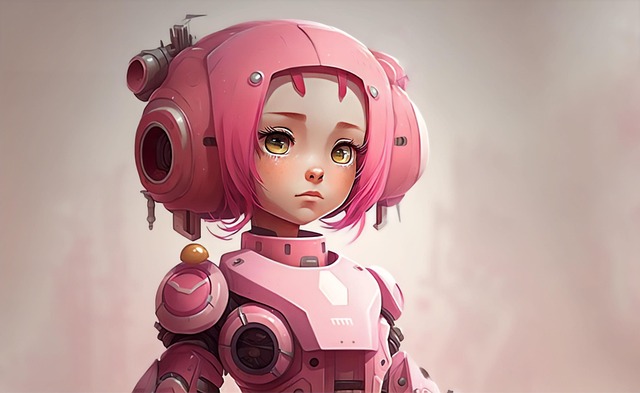# The New Era of AI Technology: Transforming Interactions, Industries, and Everyday Life
Artificial Intelligence (AI) has transitioned from a futuristic concept into an integral component of contemporary society. As we stand on the brink of what many are calling the Fourth Industrial Revolution, the implications of AI technology are profound, reshaping how we interact, conduct business, and navigate our daily lives. This article delves into the transformative power of AI, exploring its impact on human interactions, various industries, and everyday life.
## Redefining Human Interactions
The advent of AI technology has fundamentally altered the way we communicate and connect with one another. Chatbots and virtual assistants have emerged as commonplace tools for customer service, providing instantaneous responses to inquiries and enhancing the overall user experience. These AI-driven solutions not only streamline communication but also enable businesses to operate more efficiently, allowing human employees to focus on complex tasks that require emotional intelligence and creativity.
Moreover, social media platforms are harnessing AI algorithms to tailor content to individual preferences, creating personalized experiences that keep users engaged. Through advanced data analysis, AI can predict user behavior and suggest relevant content, fostering deeper connections among users and brands. This shift has led to a more interactive and immersive online environment where users feel understood and valued.
In addition to enhancing digital interactions, AI technology is also facilitating face-to-face communication. Tools such as real-time translation applications break down language barriers, allowing individuals from different linguistic backgrounds to converse effortlessly. This capability not only promotes inclusivity but also enriches cultural exchange, paving the way for a more interconnected global community.
## Revolutionizing Industries
Industries across the spectrum are experiencing significant transformations due to AI technology. In healthcare, for instance, AI algorithms are being employed to analyze vast amounts of medical data, enabling early disease detection and personalized treatment plans. Machine learning models can identify patterns in patient data that may be overlooked by human practitioners, thereby improving diagnostic accuracy and patient outcomes.
Manufacturing has also witnessed a seismic shift with the integration of AI. Smart factories equipped with AI-driven robotics optimize production processes, reduce waste, and enhance product quality. Predictive maintenance powered by AI algorithms can foresee equipment failures before they occur, minimizing downtime and maximizing operational efficiency. This technological revolution is not only boosting productivity but also reshaping the workforce, as skilled labor is increasingly complemented by AI systems.
The financial sector is another area where AI is making waves. Algorithms are being utilized for fraud detection, risk assessment, and algorithmic trading, enabling institutions to make data-driven decisions at unprecedented speeds. By analyzing market trends and consumer behavior, AI provides financial analysts with valuable insights that inform investment strategies and risk management practices. As a result, the financial landscape is becoming more agile and responsive to market dynamics.
## Enhancing Everyday Life
Daily life is being transformed by AI in ways that enhance convenience, efficiency, and overall quality of life. Smart home devices, powered by AI, are revolutionizing how we manage our living spaces. From smart thermostats that optimize energy consumption to voice-activated assistants that control home appliances, these technologies contribute to a more comfortable and energy-efficient lifestyle. The integration of AI into everyday tasks frees up time for individuals to focus on what truly matters, whether it be spending time with family or pursuing personal interests.
Transportation is another domain where AI is making a significant impact. The development of autonomous vehicles represents a paradigm shift in how we think about mobility. AI systems are being designed to navigate complex traffic scenarios, enhancing safety and reducing congestion. Furthermore, ride-sharing platforms leverage AI algorithms to optimize routes and match drivers with passengers, improving the efficiency of urban transportation networks.
Education, too, is experiencing a renaissance driven by AI technology. Personalized learning platforms use AI to adapt educational content to individual student needs, allowing for a more tailored learning experience. This approach not only fosters engagement but also helps identify areas where students may require additional support. Teachers are empowered with data-driven insights that inform instructional strategies, ultimately enhancing educational outcomes.
## Conclusion: Embracing the Future of AI
As we embrace this new era of AI technology, it is essential to recognize both the opportunities and challenges it presents. The transformative power of AI has the potential to enhance human interactions, revolutionize industries, and improve everyday life in countless ways. However, ethical considerations surrounding data privacy, job displacement, and algorithmic bias must be addressed to ensure that the benefits of AI are equitably distributed.
Collaboration between technologists, policymakers, and society at large will be crucial in shaping a future where AI serves as a force for good. By fostering an environment of innovation and responsible development, we can harness the full potential of AI technology to create a brighter, more connected world. As we stand at the crossroads of this technological revolution, the journey ahead promises to be both exciting and transformative, offering endless possibilities for human advancement.











